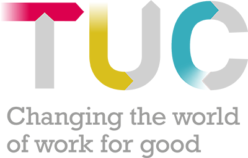Next year, millennials will make up more than 50% of the workforce. Those who entered work during the internet age are nearly all instinctively digital-first. They’re also mobile – connected throughout the day, from wherever they are.
That has raised workers’ expectations of digital interaction with companies, government and organisations. And it’s something long-standing organisations like unions can find hard to match.
‘Digital’ in an organisational sense has come to mean this idea of reinventing how our organisations work, in order to meet the new mainstream expectations of them.
To help understand how well UK unions are prepared for that digital transformation, we worked with digital agency Outlandish to survey and research unions’ current capacity and experience with digital.
We’ve published the results now as a full report, which you can download here, but here’s a summary of what we found.
Unions surveyed for this report were at different stages of a digital journey. Some have established dedicated digital transformation teams and are aiming to increase productivity by digitising parts of their operations. But more still see ‘digital’ primarily as a communications channel.
They were also at different stages in resourcing digital roles and systems. Smaller unions tend to prioritise digital roles in communications. Larger ones focus also on digital membership and IT roles. Smaller unions typically spend a much higher proportion of their overall income on digital roles and tools.
All unions agreed they would benefit from greater digitisation across their functions. Larger unions had the highest ambitions, seeing the greatest benefits in all areas except cost-saving.
In terms of risks to wider use of digital, smaller unions identified skill and resource gaps. Larger unions were concerned about skills too, but also supplier relationships and the risk of picking the wrong technologies.
Digital strategy approaches also differed across unions. Most had a strategy, but for the majority it was held in departments such as communications, rather than at organisational level.
Unions had significant concerns about their digital tools, with many rating current systems poorly. But across most categories of tools there were examples of good experiences. This suggests room for collaboration between unions.
There is broad agreement in the potential for unions to come together to share the digital transformation journey.
Most commonly identified needs were around sharing best practice, building networks of union digital practitioners, and collaborating to find trusted suppliers and technologies.
These union needs will be a key focus for the TUC as it works with affiliates to develop its Digital Lab offer.
Download the full report
You can register to download the full report as a pdf file here.

